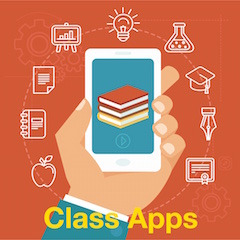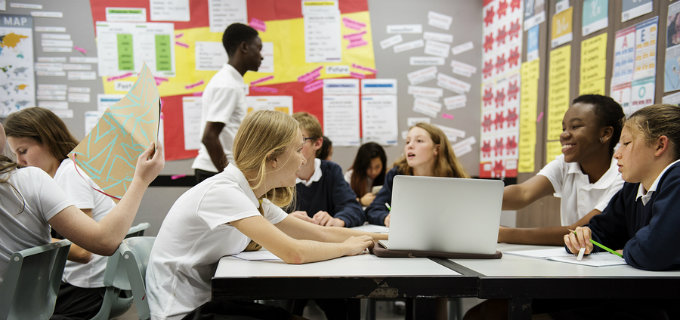What Students Learn From Being the Teacher
A MiddleWeb Blog

To my chagrin, they informed me that we would start off the year with a cross-disciplinary unit based on a 1931 Pulitzer prize novel titled The Good Earth. I had never heard of it.
The book paints a picture of the harsh realities faced by a Chinese farming family struggling in the 1920’s with drought, flood, and extreme political and social upheavals. Despite my schooling, I was immensely ignorant of the geography, the culture, and many of the issues the book presented.
But…I gave it my best. In preparation to teach, I spent countless summer hours trying to learn as much as I could about the book and everything related to it. Day after day I read (and reread) chapters. As I did so, I worked to question, clarify, predict, and make connections between the text, topics, themes, and the world around me.
Once school started, I worked with my kiddos to do the same. At strategic points throughout the unit, students even took turns teaching each other by leading structured, small group discussions. When our unit rounded out we had discovered one, simple classroom truth: we often learn the most when we are responsible for teaching something to someone else.
Reciprocal Teaching
Reciprocal teaching (RT) is a powerful instructional strategy that can help students deepen their learning by teaching other students. It helps them tackle new texts, topics, and concepts by developing learners’ ability to apply cognitive and metacognitive strategies.
Effective use of RT usually includes:
- Teacher selection of strategies they want their students to develop (e.g…identifying crucial information, summarizing, questioning, clarifying, predicting information, etc.)
- Explicit and clear modeling by the teacher of each strategy that they wish for students to develop
- Establishing a sequence (when helpful) for students to employ multiple strategies (i.e…summarizing first, identifying/asking questions about key details second, and finally, clarifying key vocabulary)
- Expert scaffolding and gradual release of the RT process to students so they can ‘be the teacher,’ or lead a structured dialogue using one or more of the strategies
- Teacher feedback to students as they teach other students and develop the ability to monitor their own learning and thinking
- Students gaining experience and confidence in assessing their own understanding of new concepts and materials
As a result, students develop the capacity to engage in self-questioning, deep discussion with peers, and employing learning strategies that help them chunk and make meaning of new information (Fisher, Frey, & Hattie, 2016).
Free RT Resources for Teachers
A variety of introductory videos for students and teachers on Reciprocal Teaching and Peer Teaching exist. A few of my favorites include:
► James Colstock’s introduction to using RT with difficult texts
► Ms. Perk’s video of introducing RT to her middle school students
► The Teaching Channel’s quick overview of peer-teaching and helping students become expert teachers
As students are learning to teach each other, they may feel more comfortable sharing via online tools:
► NowComment is a free tool that allows teachers and students to upload, annotate, and discuss documents online. The text with numbered paragraphs appears on the left side with a comment panel on the right. Students can view each other’s comments inline with the text. Questions and comments can be linked to specific paragraphs, single sentences or individual words. It even has a clickable, scrollable balloon that shows how many comments there are for each section.
► Actively Learn is a site (and Chrome app) with tons of free science, ELA, and history content. It allows students to highlight and annotate text as they read. Teachers are able to assign texts to an entire class or smaller groups of students to allow them to read, annotate, and interact/teach each other about a text.
►Hypothes.is is another free Chrome extension for students to take personal notes, read socially, and have discussions. Once the extension is added to your browser, a ‘layer’ can be added to any content or text on the web that allows you to highlight, take notes, and pose questions to others. The annotations can be made available to the public or be restricted to a group for more privacy and security. There’s even a page for educators loaded with resources suggestions for using Hypothes.is with their students.
A Flexible and Powerful Strategy
Reciprocal teaching is a flexible and powerful way to help students deepen their own learning in various content areas. Through clear teacher modeling and scaffolding, students learn to engage in metacognition and meaningful discussion.
Typically, much of our students’ school day is spent sitting passively, listening, reading, and working individually to solve problems. We provide them opportunities to learn, but far fewer chances to teach. Through reciprocal teaching, we can help them do both.
References
Fisher, D., Frey, N., & Hattie, J. (2016). Visible learning for literacy, grades K-12: Implementing the practices that work best to accelerate student learning.
































